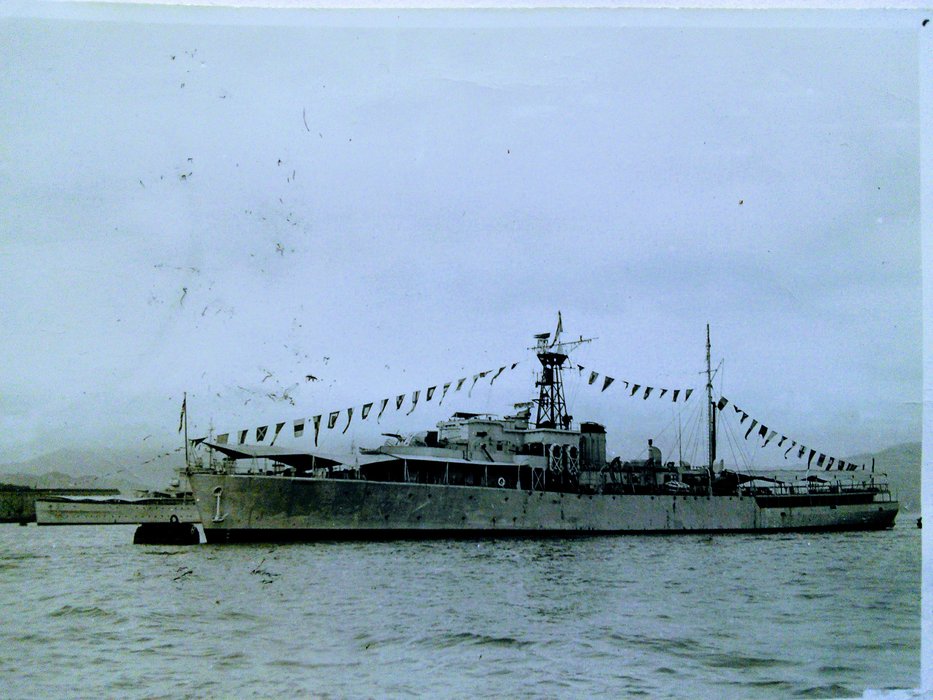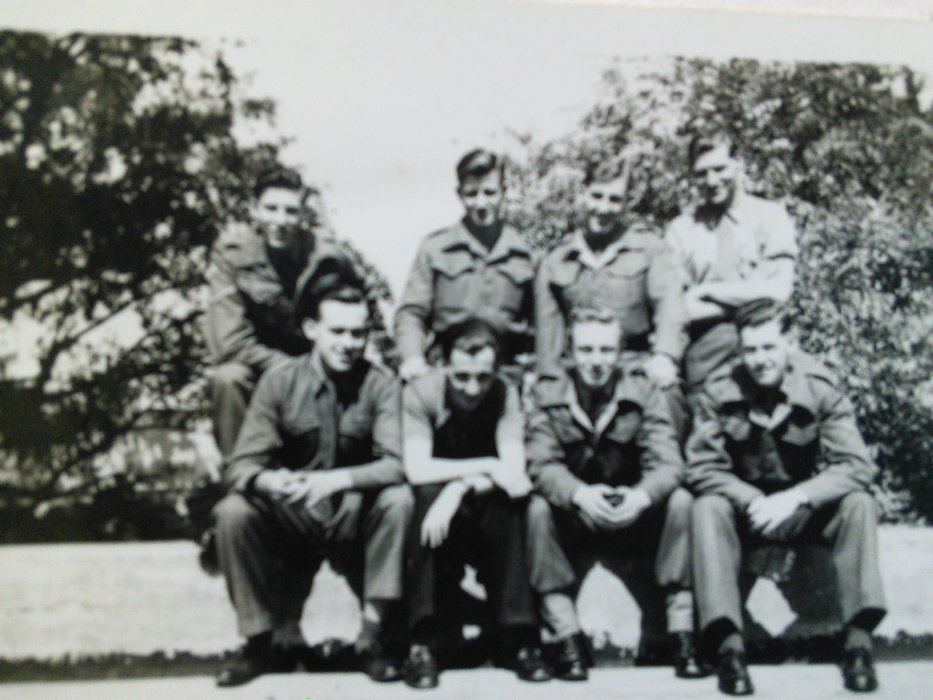
These articles are about the Army when I did my National Service. They were written with the aid of a five-year diary and later between working hours during early morning shifts.
A SOLDIER'S TALE (13)
The presence of the Chinese Communists was responsible for a spate of exercises, no doubt designed to deter them from any naughty thoughts about taking over the lucrative, high-living colony of Hong Kong. These added the burden of the whole G staff, who were closely involved in the planning. We went on to shift working and - horrors - had to wear boots and gaiters in the office, and carry a rifle and steel helmet. "Aladdin", "Alabaster", "Aristotle", "Finger Trouble", "Garner", "Scramble", "Vicray" - one after another the code names appeared, were planned and carried out - often with great inefficiency, and much amusement.
"Aladdin" involved an attack on our imposing headquarters, now surrounded by a ten-foot fence and flood-lighted at night. It felt like a prison camp. All day Marine commandos and the local "dad's army" - the Hong Kong Defence Force - were manned by what they believed were strategic positions within and without the wire.
As we were about to go off duty for an hour for tea, there was a blood-chilling yelling. "What the hell's that", exclaimed Chas, and we rushed onto the verandah. Charging down the hill to the right of the building were 40 Gurkha troops armed with sticks attacking the Marine positions. They were met by a fusillade of blank shots. As I watched a burly defender, with bayonet fixed, prodded a diminutive attacker to the area where the "prisoners" were being marshalled. Both the Marine and Gurkha were grinning broadly.
Later, we understood that the Gurkhas had not been armed with anything more lethal than sticks because of their notorious fighting qualities, which might have led their being carried away in the heat of the moment! But that didn't explain how they had scaled the perimeter fence without being discovered. We felt very exposed to ill-wishers, in spite of Major "Mad Mike" wandering about in the thick of the melee letting off his usual thunderflashes, and doling out packets of fags to all of us afterwards.
Within days of the Communists arriving on the border, there was a riot by tramway workers at the Russell Street depot. Anxious letters from the UK subsequently inquired about my health, but all I knew was that I been woken up in the middle of the night by police bells and later, read all about it in the South China Morning Post. That was probably the most unpleasant incident concerning the Communists, whose arrival at the border appeared to be a signal for the colony to become dotted with their red flag.
Apart from the border watch, the tension began to ease into comparative peace and then the ever-present rumours and counter-rumours about the dates of sailing of demob groups once again assumed priority in our conversations. My group - 132 - was alleged to the going home on the "Empire Orwell" in February. But it was still November, and long before Christmas I was to spend a day rolling about the China Sea aboard the frigate HMS "Morecambe Bay". It was part of an interesting public relations campaign designed to increase the troops' knowledge about how the other services worked. About two dozen of us embarked on the frigate in the early hours. The plan was to put to sea for gunnery practice. It was rough and cold and windy, and far from them laughing at the plight of the more queasy stomached soldiers who succumed to seasickness, the friendly sailors planted the worst affected lads around the warm smokestack and fed them dry bread. A cure that must have had the authenticity of generations behind it.

By and large my own sea legs held out and I was able to take an interest in my surroundings. But on descending into the forecastle for lunch in the seamen's mess, I felt distinctly uneasy. Hastily I was given food and sent back on deck with a mug of tea. In the event, the gunnery practice was a non-starter, for the frigate was diverted to look for a Seafire which was thought to have crash-landed uncomfortably close to the Communist mainland. We didn't find anything, but to make up for the lack of fireworks, the Navy loosed off a Bofors gun at nothing in particular, gave us a tot of rum, and took us home again.
On arrival at the barracks I found that a grateful Army had recognised the devoted service of one Private Hall J., who duplicated for the defence of Hong Kong, had promoted him to lance corporal! (Paid!). But it was a non-event. So many of us had worked hard in the past months that virtually the whole billet were promoted. This meant that the benefit of seniority excluding one from fatigues around the billet and billet cleaning, were not realised. There were insufficient privates left to do it. So with its malign perversity the Army again had the last laugh.

Hong Kong society, of course did its bit for the troops in 1949, For instance, Hong Kong Yacht Club threw open its doors to "other ranks " - providing they were sponsored by an officer. My boss, Captain Crichton was instrumental in getting me accepted, and one Saturday I made a lonely motor boat trip to the island in the harbour on which it was located.
My civilian clothes were of a quality which even made the Chinese boatman raise normally impassive eyebrows and, terrified, I crept into the front door with a genuine welcome by the secretary, who handed me over to a group who turned out to be - to my embarrassment - army officers! Nevertheless, I was in some demand to crew the dinghies for racing, and spent some enjoyable hours on the harbour in fair weather or foul. I remember particularly, a rather loud woman took me as crew one day, but her martinet skippering and my some what mutinous responses, together with I hoped were not really dubious advances on her part, led me to avoid crewing for her thereafter.
But it was too good to last. Occasionally, well-dressed women clutching double gins and tonics, asked who I was. In explaining, that I was a lance-corporal and and a clerk to boot, they would exclaim: "Oh" rather distantly and move away. But although irritating and embarrassing, this attitude was not completely typical. After all, didn't I spill beer over the Commodore's daughter and received a charming smile in reply to my stuttered apologies? No, the real reason for the parting was my finances. I could not afford to pay my own way if I became involved with a group at the bar. For instance, the delicious club sandwiches cost the equivalent of a day's pay. So, reluctantly I lapsed my "membership" and left the club for the last time.
Food, of course, was our main delight. To evacuees and blitzed children in the Second War, food like ham and eggs were next door to paradise. Rationing was still in force in the U.K. and the more thoughtful of us actually sent parcels home. They were specially prepared in Australia and were sent for us by by the charming ladies of the WVS who ran the Union Jack Club where, incidentally, their ice cream sodas were magnificent.
It was in search of food one late afternoon at the Navy's Fleet Club that I ran into Mike Brocklehurst whom we met in training at Yeovil. He had eventually been posted to Kuala Lumpur in Malaya and had flown to Hong Kong for a few days leave. We celebrated the small dimensions of the world on a table full of beer bottles, with a lively WRAC sergeant called Judy. I forget how we met her...
To be continued...